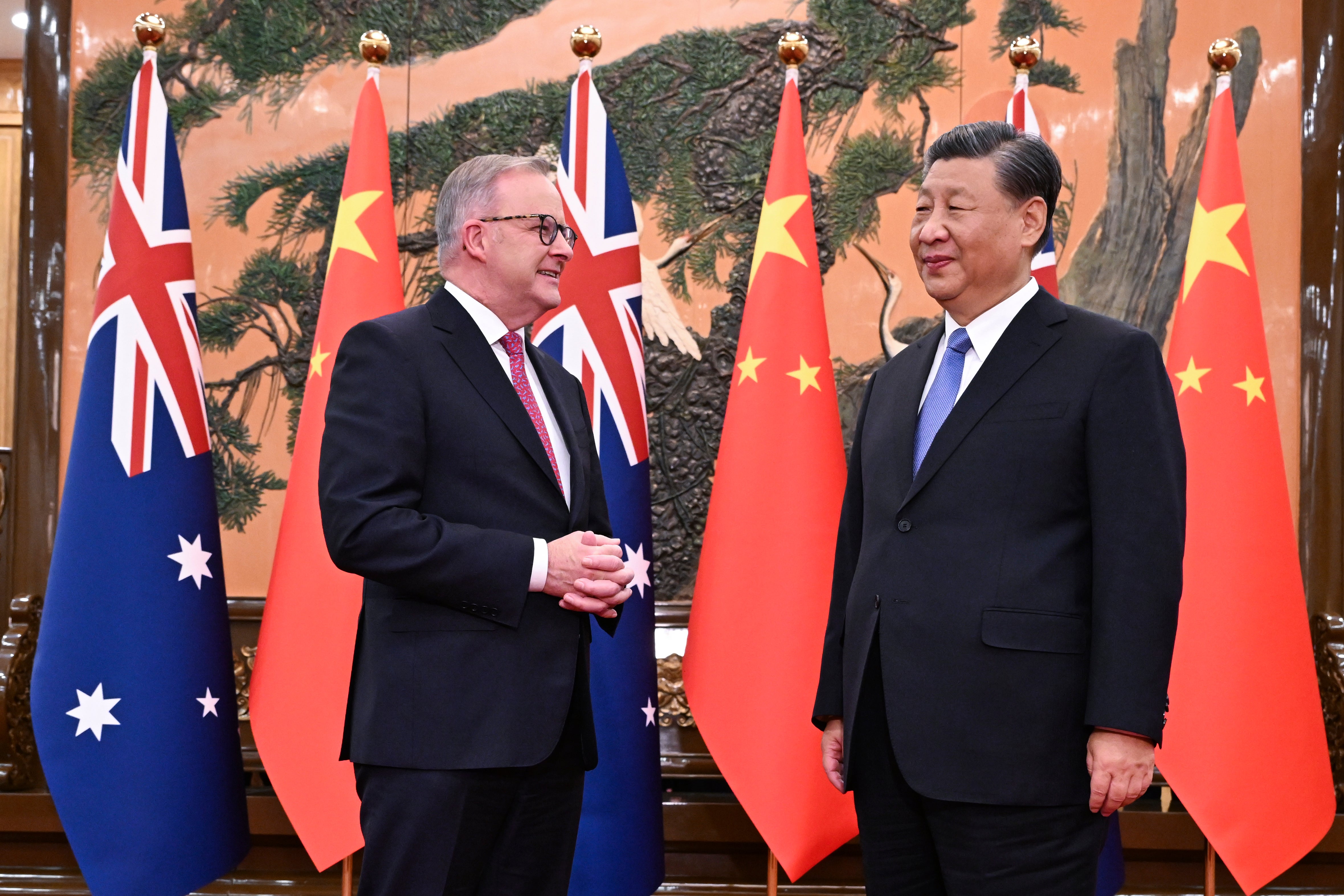Australian PM hits out at China over ‘dangerous’ sonar use on divers
Such clashes in international waters ‘do damage to relationship’ that was only just improving between Australia and China, says Anthony Albanese

Australian prime minister Anthony Albanese has accused China‘s navy of operating in a "dangerous" and "unprofessional" manner after an apparent sonar attack that left at least one Australian military diver injured.
Australia said a Chinese Navy destroyer ignored requests to keep clear of the divers when the HMAS Toowoomba – a long-range frigate – was conducting a diving operation in Japan's exclusive economic zone on 14 November to clear fishing nets from its propellers.
Despite the Australian Navy frigate reportedly communicating its intentions, a Chinese ship approached the frigate and emitted dangerous sonar pulses, defence minister Richard Marles said on Saturday.
Medical assessments found minor injuries to divers likely caused by the destroyer's sonar, according to Australian authorities.
The Australian prime minister has been facing mounting domestic pressure to raise the issue directly with Chinese president Xi Jinping as the two briefly met on the sidelines of the Asia-Pacific Economic Cooperation (APEC) forum in San Francisco last week following his landmark visit to China earlier this month.
"This was dangerous, it was unsafe and unprofessional from the Chinese warship," Mr Albanese told Sky News Australia, publically addressing the incident for the first time.
He said the incident caused injury to one person and showed the need for "communication guardrails" between militaries.
"We need to avoid reckless events like this. This is why we’ve made our strong objections to China. This is one of those times we disagree with China ... this sort of event should not occur," the prime minister said.
Mr Albanese said the incident was raised through "all of the normal channels", but didn't disclose if it was discussed in his private meeting with Mr Xi at APEC.
"The consequences of these events are that they do damage to the relationship. And this certainly is an event that does do damage. And we've made that very clear to China," he added.
Opposition in Australia said the prime minister should have raised the issued directly with the Chinese president.
Mr Albanese “would have known this happened and he has boasted about the time that he spent with Xi Jinping and China’s foreign minister, Wang Yi, while he was there”, said shadow home affairs minister James Paterson.
"But did he raise this question?" he asked. “He hasn’t said so and if he’s not saying so it would appear the answer is he didn’t.”
The US, Canada and Australian militaries have previously complained about "dangerous actions" by the Chinese navy and air force, which have often led to fears of collision.
Washington last month released footage of more than 180 Chinese intercepts of US fighter jets in the western Pacific over the past two years.
Ely Ratner, the assistant secretary of defence for Indo-Pacific security affairs, said there has been a “sharp increase in coercive and risky operational behaviour in the East and South China seas”.
“The bottom line is that in many cases, this type of operational behaviour can cause active and dangerous accidents” and can lead inadvertently to conflict, Mr Ratner added.
Subscribe to Independent Premium to bookmark this article
Want to bookmark your favourite articles and stories to read or reference later? Start your Independent Premium subscription today.

Join our commenting forum
Join thought-provoking conversations, follow other Independent readers and see their replies